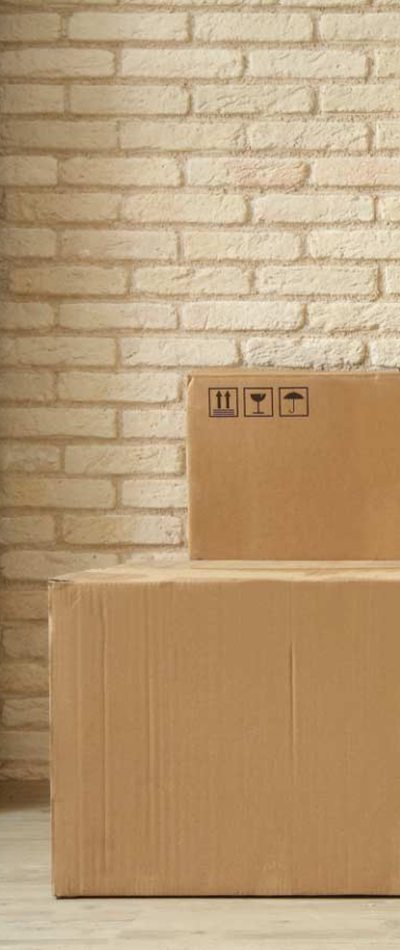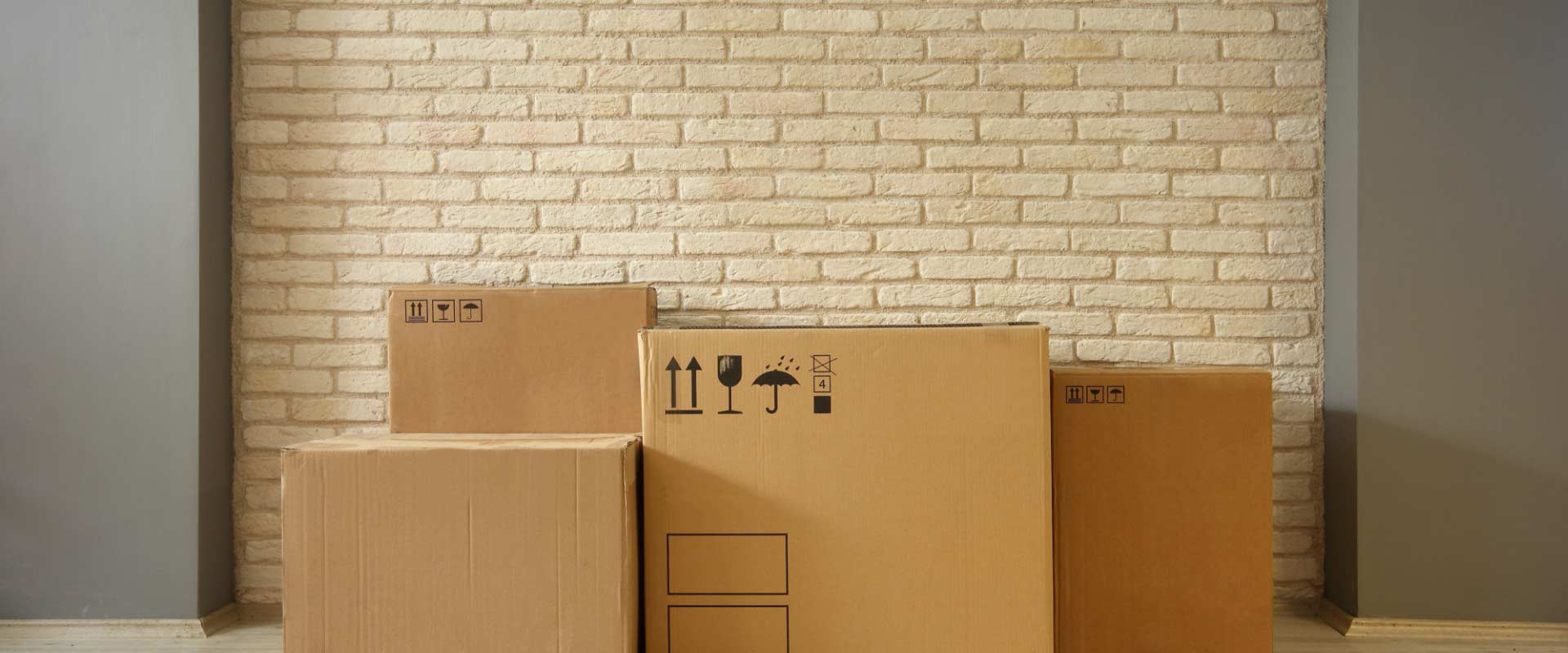MOVING TIPS: 101
A few tips to help make your move smooth and stress-free.

Moving Your Home
Moving to a new home can be stressful. Here is a list of things to keep in mind when getting ready to move.
- Write everything down. Before you pack even one box, create a simple record keeping system.
- Have plenty of supplies. You'll need plenty of boxes; probably more boxes than you think. If you buy your boxes from a moving company, you can always return unused boxes for a refund. Have about 10 boxes set aside to use for last minute items on moving day such as bedding, clothing and cleaning supplies.
- Notify the post office, magazines, credit card companies, and friends and family of your change of address. The U. S. Postal Service offers a kit to make this process easier.
- Discontinue home delivery of newspaper.
- Contact utilities (gas, water, electricity, telephone, cable company) to schedule disconnection of services on the day following your move. Call the utilities in your new town to arrange for service to start the day before your move so that you have service when you arrive at your new home.
- Write directions to your new home for the mover. Provide the new phone number and your cell phone where you can be reached in transit. Don’t forget to leave your forwarding address and phone number for your home's new occupants.
- Color code and designate a color for each room in the new home, such as yellow for kitchen, orange for dining room, etc. In your new home, put a matching sticker on the door to each room so that the movers will know where to put everything when they arrive at the destination.
- Pack ahead. Box up your shampoo and extra toothpaste and live out of a travel cosmetic case for the last week or two. Pare down cooking utensils and food supplies to bare essentials. Wastebaskets can also be packed (put things in them!) while you switch to using plastic grocery bags (hang them on a cabinet door or door handle to collect trash.)
- Put together a kit of basic cleaning supplies and clean anything possible ahead of time.
- Safeguard valued items. It's a good idea to keep valuable possessions, such as silverware, collections or antiques with you. If you have a long move and no room in your car, bury the items in a box titled for example Misc. from Kitchen Pantry. Either way, check your homeowner's insurance to see how you are covered during the move and if you need additional insurance from the mover. Find out what paperwork (receipts, appraisals and photos) you might need to file a claim in case of loss.
- Keep important papers with you. These might include birth certificates, school records, utility company numbers, recent bank records, current bills, phone lists, closing papers, realtor information, maps and more.
- Pack personal boxes. Let each family member fill a box with items they'll want right away in the new home such as a set of sheets, a towel, extension cords, address book, pens and paper or travel cosmetic case.

Moving Your Business
In business, time is money. Use these helpful tips to make moving into your new offices quick and speedy.
- Make a packing plan. Identify the items you can pack early, those needed during the final week or two before the move and those that can’t be packed until the last couple of days.
- Your packing plan should include a list of what you’ll need immediately after you arrive at your new premises. For example faxes, telephones, computers and deadline-related materials.
- Call your mover and confirm your reservation one week before the move.
- Make sure all utilities are transferred. A few days before the move, confirm all the necessary changes with your electricity, public utilities, internet and telephone providers.
- Back up your computer data files. This cannot be overemphasized. The information in your computer systems is extremely valuable and losing it could cause you endless difficulties.
- As soon as you can, pick up the boxes and packing materials from your mover or other sources.
- Reserve enough boxes for those things you can't pack until the last minute.
- Pack according to your packing plan. Mark the boxes or containers to reflect their priority for unpacking, especially the items you'll need right after you arrive at your new premises. Color-coded stickers are a good way of denoting high, medium and low priority items. Keep in mind the need to get your business up and running as soon as possible after the move.
- Computers, phones, faxes and other office equipment will likely be a priority to unload and set up. To make this easier, put all components, operating manuals, cables and other essentials in clearly marked containers and keep them together. Make sure you know how to hook everything up with a minimum of delay.
- Make sure high priority items are loaded last so they'll come off the truck first.
- Once the movers are ready to go, confirm when they'll arrive at your new premises.

Tips For Kids
Moving to a new home can be stressful. Here is a list of things to keep in mind when getting ready to move.
- Stay connected. Keep in touch with your friends via text, email or social media.
- Write a list of who you want to say goodbye to before you leave, maybe your babysitter, favorite neighbor or teacher. Show the list to your parent(s) and then call, text or email them. If you see them in person give them a goodbye hug!
- Think of your favorite places such as a park or ice cream store that you want to visit one more time before you move. Talk to your parent(s) about when you can go.
- Start drawing a cool design for your bedroom in your new home. Think about the colors you want to paint it and where to put your bed.
- Moving is a good reason to get rid of junk you don’t need anymore. Go through your toys and games and sort them into three groups: things you want to take with you to the new home, things to toss out (broken toys and games with missing pieces), and things you don't want, but could be given away to other kids or a charity.
- The first night in your new home is special. Think about things you want with you, such as your favorite pajamas or stuffed animal. Pack these in your suitcase or backpack.
- Take some things to do on the airplane or in the car on the way to your new home, such as books, games or ipad.
- Memorize your new address.
- Explore your new community. Make a list of things you want to see, do and look for in your new community. Show your parent(s) and talk about when you can start.
- Text or email your friends—let them know how you’re doing and tell them about your new home.


 MOVING YOUR HOME
MOVING YOUR HOME MOVING YOUR BUSINESS
MOVING YOUR BUSINESS TIPS FOR KIDS
TIPS FOR KIDS